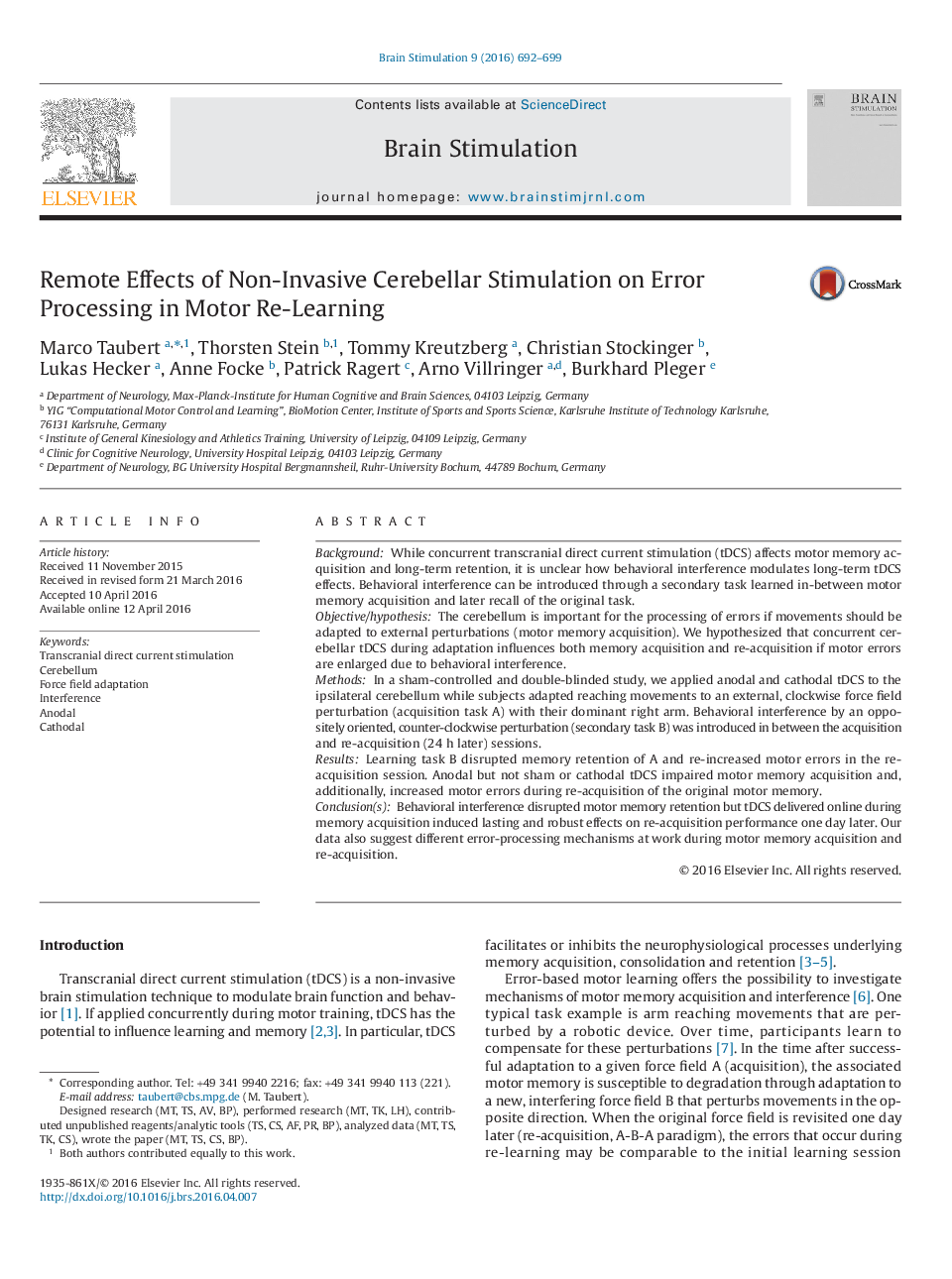| Article ID | Journal | Published Year | Pages | File Type |
|---|---|---|---|---|
| 3038693 | Brain Stimulation | 2016 | 8 Pages |
•Sham-controlled, double-blinded tDCS study on the cerebellums role in motor (re)learning.•A-B-A paradigm employed to create behavioral interference by secondary task (B) and test long-term tDCS effects on motor memory re-acquisition.•Behavioral interference disrupted motor memory retention but (anodal but not sham or cathodal) tDCS delivered online during memory acquisition induced lasting and robust effects on re-acquisition performance.
BackgroundWhile concurrent transcranial direct current stimulation (tDCS) affects motor memory acquisition and long-term retention, it is unclear how behavioral interference modulates long-term tDCS effects. Behavioral interference can be introduced through a secondary task learned in-between motor memory acquisition and later recall of the original task.Objective/hypothesisThe cerebellum is important for the processing of errors if movements should be adapted to external perturbations (motor memory acquisition). We hypothesized that concurrent cerebellar tDCS during adaptation influences both memory acquisition and re-acquisition if motor errors are enlarged due to behavioral interference.MethodsIn a sham-controlled and double-blinded study, we applied anodal and cathodal tDCS to the ipsilateral cerebellum while subjects adapted reaching movements to an external, clockwise force field perturbation (acquisition task A) with their dominant right arm. Behavioral interference by an oppositely oriented, counter-clockwise perturbation (secondary task B) was introduced in between the acquisition and re-acquisition (24 h later) sessions.ResultsLearning task B disrupted memory retention of A and re-increased motor errors in the re-acquisition session. Anodal but not sham or cathodal tDCS impaired motor memory acquisition and, additionally, increased motor errors during re-acquisition of the original motor memory.Conclusion(s)Behavioral interference disrupted motor memory retention but tDCS delivered online during memory acquisition induced lasting and robust effects on re-acquisition performance one day later. Our data also suggest different error-processing mechanisms at work during motor memory acquisition and re-acquisition.
